Brazil's Rousseff talks trade and training in US visit
- Published
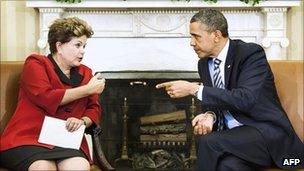
Both leaders said US-Brazil co-operation could improve
Brazil's President Dilma Rousseff has stressed the growing importance of relations with the US after meeting President Obama at the White House.
Ms Rousseff said there was potential to deepen co-operation, particularly in Brazil's booming oil and gas industry.
She expressed concern about expansionist monetary policies in developed countries, saying they were impairing growth in emerging economies.
President Obama said US-Brazil relations "had never been stronger".
He hailed the "extraordinary progress" Brazil had made under President Rousseff and her predecessor, Luiz Inacio Lula da Silva, saying it had become "a leading voice in the world".
President Rousseff is making her first official visit to the US.
The main aim of her trip is to boost ties between the two biggest economies in the Americas.
Ms Rousseff told reporters that she welcomed the "increasing close" trade links and growing mutual investment between Brazil and the US.
She said co-operation could go much further, both in terms of trade and in "science, technology and investment".
But she expressed concern about the international economic crisis, and in particular the depreciation in the value of currencies such as the US dollar.
She said this was damaging economic growth in developing countries and amounted to a form of "exchange-rate protectionism".
President Obama also said the relationship could be improved "so that not only Brazil and the US, but the world can benefit from our deeper co-operation".
'Untapped potential'
In recent years China has replaced the US as Brazil's biggest trading partner, and the US has made clear its desire for greater involvement in Brazil's fast-growing economy.
Brazil is also seeking to boost its international standing, and wants US support for its bid for a permanent seat at the UN Security Council.
Earlier on Monday US Secretary of State Hillary Clinton announced she would be visiting Brazil next week.
Mrs Clinton said the US would be opening two additional consulates in Brazil - in Belo Horizonte and Porto Alegre - to keep up with the "expanding relationship".
Another key focus of Ms Rousseff's visit is education, as Brazil seeks to tackle its shortage of skilled workers.
The Brazilian government has unveiled a programme to send some 100,000 students overseas to study at the world's best universities, with about a fifth destined for US institutions.
Brazil and the US have disagreed on some diplomatic issues in recent years - in particular over sanctions against Iran.
- Published9 April 2012
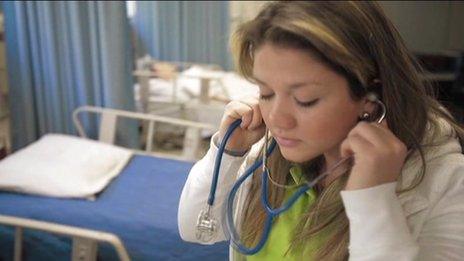
- Published6 March 2012
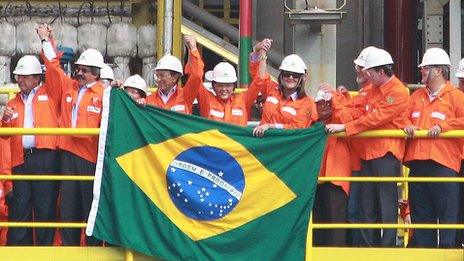
- Published8 January 2012

- Published13 April 2016
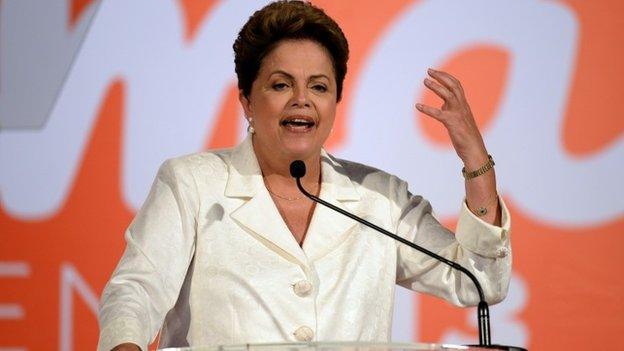
- Published29 December 2011
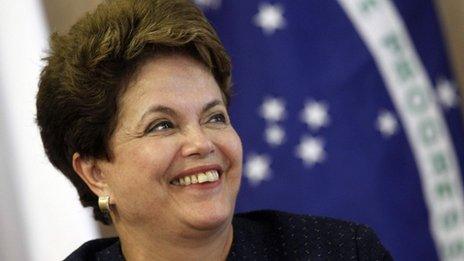
- Published17 March 2011